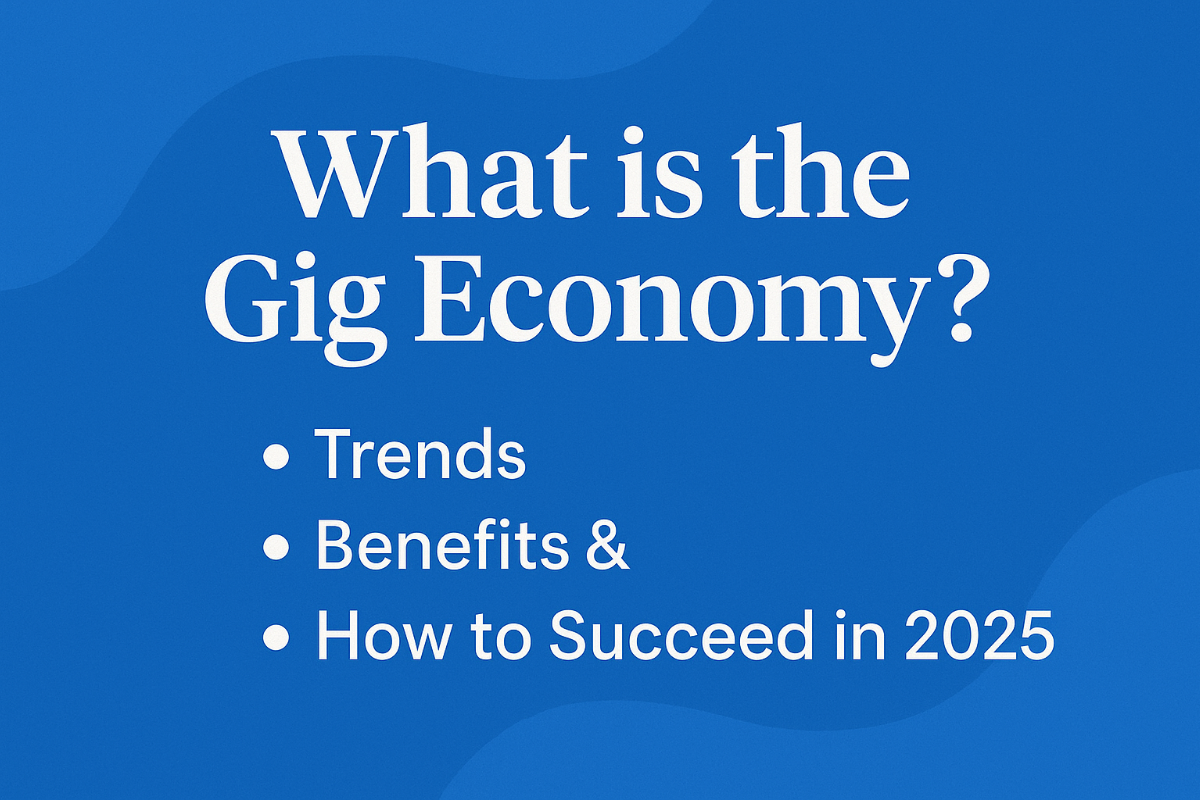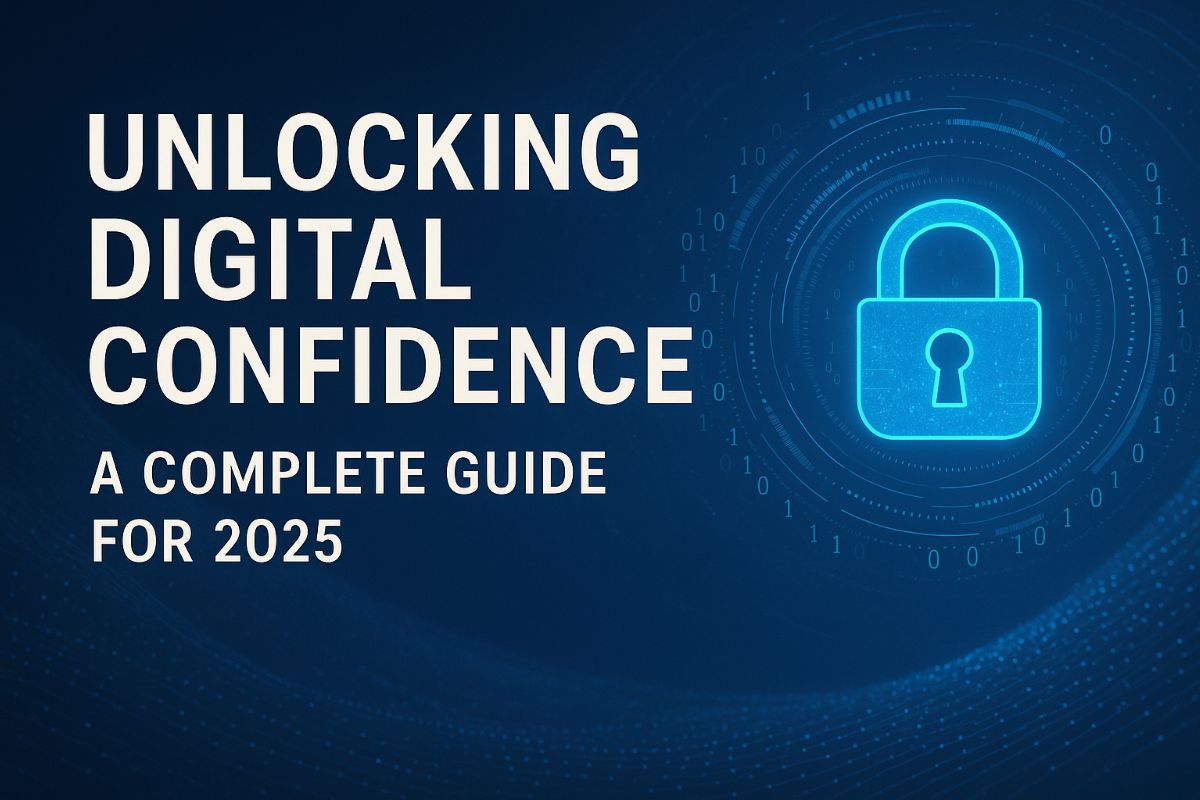What is the Gig Economy?
The gig economy refers to a labor market defined by short-term contracts, freelance work, and independent, on-demand jobs rather than permanent positions. Think Uber drivers, freelance graphic designers, Upwork coders, or food delivery riders—these individuals aren’t full-time employees but are paid per task or “gig.”
In simpler terms, the gig economy is like working on your own terms—flexible, independent, and often remotely.
Why is the Gig Economy Growing?
There are a few major reasons the gig economy is booming in 2025:
1. Digital Platforms Fuel the Growth
Apps like Uber, DoorDash, Fiverr, Upwork, and TaskRabbit have made it easy for people to find work or workers online within minutes. Businesses can outsource tasks globally, reducing costs.
2. Remote Work & Tech Advancements
Post-2020, companies embraced remote work, pushing more people toward freelance and contract jobs. Tools like Slack, Zoom, and project management apps make it easier than ever to work from anywhere.
3. Lifestyle Freedom
Many prefer gigs over traditional jobs for flexibility. Want to work from Bali or set your own hours? The gig economy enables that.
4. Economic Uncertainty & Job Cuts
Corporate layoffs and AI automation have pushed professionals to diversify their income, turning to side hustles and freelance work for security.
Key Sectors Dominated by Gig Work
Gig opportunities exist across many industries. Some of the most active sectors in 2025 include:
H3: 1. Transportation & Delivery
- Uber, Lyft, DoorDash, Instacart
- High demand due to online shopping and food delivery
H3: 2. Freelance Creative & Tech Jobs
- Platforms: Upwork, Freelancer, Toptal
- Roles: Developers, Designers, Writers, Marketers
H3: 3. Online Education & Tutoring
- Chegg, Preply, VIPKid
- Gig teachers providing 1-on-1 online lessons
H3: 4. Home Services
- TaskRabbit, Thumbtack
- Handyman, cleaning, furniture assembly
H3: 5. Healthcare (Gig Nursing/Telehealth)
- On-demand nurses and virtual doctors are growing rapidly
Benefits of the Gig Economy
Working in the gig economy offers several major advantages, both for workers and businesses:
For Gig Workers:
Flexibility & Autonomy
Work when and where you want. Ideal for those who dislike 9-to-5 jobs.
✅ Multiple Income Streams
Diversify your income by working on different platforms or projects.
✅ Skill Development
Take on varied projects and improve real-world experience fast.
✅ Location Independence
Many gigs are remote—travel while you work.
For Businesses:
Cost-Effective
No need to offer benefits or long-term salaries.
💼 Access to Global Talent
Hire skilled professionals from anywhere in the world.
💼 Scalability
Scale your workforce up or down depending on demand.
Challenges Faced by Gig Workers
While appealing, gig work isn’t always easy. Here are the key challenges to be aware of:
1. Lack of Job Security
No guaranteed income or long-term contracts.
2. No Employer Benefits
You’re responsible for your own health insurance, retirement, and taxes.
3. Burnout Risk
Freelancers often overwork to make ends meet or chase high income.
4. Platform Dependency
If you rely heavily on one platform (like Uber or Fiverr), changes in policy or algorithm can seriously impact your earnings.
5. Payment Issues
Late or unfair payments are a common pain point, especially when working with new clients or international companies.
How to Succeed in the Gig Economy
Whether you’re just starting or looking to scale, here’s how to thrive in the gig economy:
1. Build a Personal Brand
Create a strong online presence via LinkedIn, a personal website, and social profiles. Add a portfolio that shows off your skills.
2. Choose the Right Platforms
Select gig platforms that align with your expertise. Start with 1–2, build ratings, then expand.
3. Upskill Regularly
Stay updated with in-demand skills in your field. Use platforms like Coursera, Skillshare, or Udemy.
4. Network Actively
Build client relationships, ask for referrals, and join industry communities. Word of mouth drives trust.
5. Manage Finances Wisely
Use tools like QuickBooks or FreshBooks to track income, expenses, and taxes. Set aside money for health insurance and retirement.
6. Diversify Your Clients
Avoid dependency on a single platform or client. Aim to have 3–5 regular clients for income stability.
7. Prioritize Client Satisfaction
Deliver quality work, meet deadlines, and communicate clearly. Your reputation is everything.
The Future of the Gig Economy
Looking ahead to 2026 and beyond, several trends are shaping the gig landscape:
1. Rise of AI-Augmented Freelancers
Gig workers are using AI tools like ChatGPT, Midjourney, and automation to improve productivity and deliver faster results.
2. Government Regulations
Countries are starting to introduce protections for gig workers, such as minimum pay, benefits, and legal support.
3. Specialized Platforms
Niche gig platforms (like freelance platforms just for medical professionals or legal consultants) are gaining traction.
4. Hybrid Work Models
More companies are using a mix of full-time employees and freelancers, offering the best of both worlds.
FAQs About the Gig Economy
Q1: Is the gig economy only for millennials and Gen Z?
No. While younger generations dominate, people of all ages—from students to retirees—work gigs for flexibility and extra income.
Q2: Do gig workers pay taxes?
Yes. Gig workers are considered self-employed and must report income, pay self-employment taxes, and often quarterly estimated taxes.
Q3: What are the best gig economy jobs in 2025?
Top gigs include:
- Freelance writing/design
- Web development
- Social media marketing
- Online tutoring
- App-based delivery driving
Q4: How can I transition from full-time to gig work?
Start with a side hustle. Build your client base, save a safety net (3–6 months’ expenses), then go full-time once stable.
Q5: Are gig jobs considered real careers?
Absolutely. Many freelancers earn six figures and build full-fledged businesses. The gig economy is a valid, growing career path.
Final Thoughts: Is the Gig Economy Right for You?
The gig economy in 2025 is not a passing trend—it’s a fundamental shift in how we work. It offers freedom, flexibility, and incredible opportunities, but also demands discipline, self-management, and strategic planning.
Whether you’re looking for a side hustle, a career change, or a flexible lifestyle, the gig economy has a place for you. Just remember: like any career path, success comes from consistency, learning, and relationship building.





